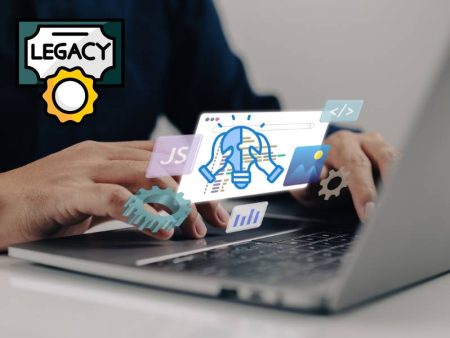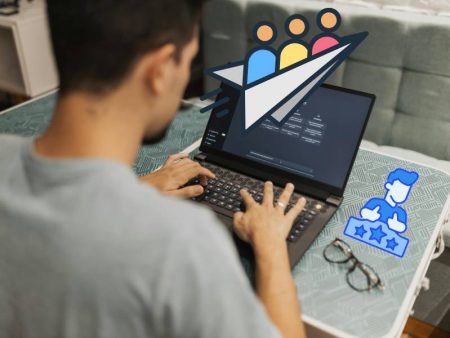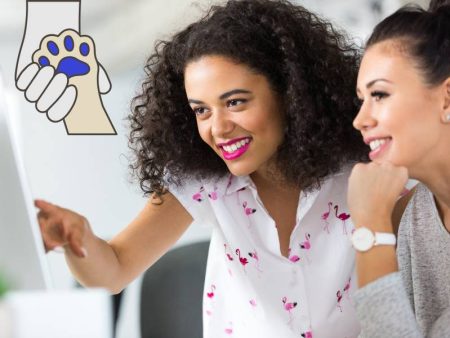Have you ever wondered—Can I actually use that AI-generated image I just created? Believe it or not, it’s 2025 and the question of copyright and AI visuals is still a wild patchwork of “sometimes yes,” “sometimes no,” and “it depends.” But before you stress, let’s unpack this together, step-by-step, with some friendly banter and real talk.
The Snapshot of Where We’re At
Back in 2023, people casually assumed every image churned out by AI was copyright-free. Fast forward to now, and the legal scene looks more complicated. Laws have shifted, court cases have popped up, and platform policies vary—some user agreements promise free use, others subtly say it’s shaky.
Picture this conversation:
Me: “Hey AI, generate me a futuristic cityscape with flying cars.”
AI Friend: “Sure—just know, your usage rights depend on which model you used.”
Me: Pause. “Wait, what model? There are hundreds.”
That’s exactly where many folks are stuck today. So let’s break it down—and get clarity.
Who Actually Owns AI-Generated Art?
There are a few stakeholders:
- Tool/platform – Many AI manufacturers claim usage rights, but often reserve some rights for themselves.
- User/operator – Folks typing prompts—but are they considered creators?
- Training data owners – Those whose images were scraped to train models—did they consent, or were their rights bypassed?
Right now, in most jurisdictions, courts haven’t ruled that AI-generated art is automatically copyrightable. Some platforms say users own the results, but those terms can change.
Platform Terms Matter… A Lot
Say you used an AI Image Generator No Blur tool for sharp, crisp visuals. Its policy might say:
“All generated images are royalty-free, commercial use granted, no attribution required.”
That gives you freedom—but it’s legally based on their internal policy. If they flip terms later, you’d need to re-check.
Other tools like AI Image Generator Without NSFW Restrictions may allow edgy content, but also include a clause saying they don’t grant indefinite commercial rights—just temporary usage. That means you might be in murky territory if you post images to a commercial site or book cover.
Real-World Case: Midjourney Image Rights
A few months ago, Midjourney updated its policy—granting full commercial rights only to paid users. That sparked furious threads:
- Some screencapped freebies before the change, hoping to freeze-time on rights.
- Others deleted old content, terrified they’d be retroactively blocked.
Moral? Always read the fine print—and keep records of screenshots or download dates if you’re banking on policy terms.
Blocking Artist Lawsuits: A Legal Minefield
In 2024, a group of visual artists sued over art-model training data, claiming their artwork was used without permission. The courts are still weighing:
- Can an image be “derivative” if it’s woven from many unseen sources?
- Should artists be compensated for being part of massive training sets—like a giant pixel mash-up?
This ongoing case may change the entire field. If courts rule in favor of artists, AI platforms could be forced to acquire explicit licenses—or freeze usage of certain styles.
Creative Commons ≠ Clear Rights for AI
Some people think: “I only trained my model on CC0 images—that makes my output free.” Not exactly.
Even if the training set was public domain, the output might unintentionally recreate a recognizable piece of pop art or famous logo. So giving a blanket CC0 tag to AI outputs is premature at best, and legally risky at worst.
Let’s Chat Scenarios—What Can You Actually Do?
Personal Use
If you’re making a birthday invitation, personal blog banner, or wallpaper? Generally safe. Just use the tool’s download.
Small Business Marketing
Want hi-res visuals for your Shopify store? Not so fast. You need to confirm the license covers commercial use. Check the platform’s terms, and if they’re sketchy, email their support.
Selling Products or Designs
If you’re planning to sell AI-generated posters or NFT art? Then model-model provenance and licensing matter hard. You’ll want a complete record: which service, which model version, what date, and license approval.
A Real Experiment: Live Chat
Me: “Hey platform, I’m using your AI Image Generator Without NSFW Restrictions for edgy character art. Can I sell these assets in a Kickstarter campaign?”
Support: “Yes for commercial use—our standard license allows digital assets and physical items for sale. Just no redistribution of our ML model.”
That one-liner gave me serious peace of mind. It’s why I recommend always chatting with their support—or at least screenshotting the Q&A.
Ownership in Collaborative Prompts?
What if you work with a creative team? Someone writes the prompt, another refines, another picks final output.
Who owns it then?
Generally speaking: unless platform terms say otherwise, copyright is tied to the user account—so whoever triggered the generation usually owns it. If you’re in a team, use shared accounts or clearly defined roles in contracts.
Fair Use vs Copyright: AI Images
Some platforms argue their AI-generated images fall under “fair use” because no one explicitly copied—just learned. But that’s a shaky argument; fair use depends on purpose, nature, market impact, and transformation.
If your AI output competes with the original likely image market, fair use probably doesn’t protect you.
Images With Recognizable People or Property
If your prompt says “Tom Cruise style” or “Disney castle at sunset”—you might be crossing IP lines or violating rights. Those replicas could be attacked as infringing likeness or trademark rights.
Safe approach: avoid brand names or celebrity references, or use tools that restrict these. Comedy legal disclaimers won’t hold up in court.
Best Practices for Safe AI Image Use
Let me be clear—I’m not a lawyer. But here’s a practical checklist:
- Read the license of your tool/platform and save a copy.
- Screenshot the terms when you download—timestamp counts.
- Document your prompt and model version (e.g. “v3.2, Jan 2025, prompt ‘sunset surfer silhouette’”).
- Avoid trademarked terms unless you have rights.
- Have a fallback—your own original photo set if legal risk is too high.
- In commercial use, err on the side of caution—use platforms with clear commercial rights.
Future Look: Where Law Is Going
By 2026, we might see:
- Model-specific licenses—platforms issue explicit “image generation rights token”
- Watermark tracing—some platforms embed invisible metadata to track usage
- Royalty frameworks—AI-platforms pay fractional royalties to training-data contributors
- Regulatory standards—industry-wide rules for AI-generated content usage
The landscape is shifting fast. Keep your eyes open.
Emotional Angle: Why This Matters
On a human level, image ownership is about fairness. It matters to creators whose works trained these models—sometimes unknowingly. It matters to brands who rely on visuals to build identity. It matters to AI tool developers who want to empower without accidentally cheating.
Understanding copyright isn’t just legal compliance—it’s respecting creative ecosystems.
My Personal Take
I love AI-generated visuals—they free me creatively. But I also track my usage, annotate my prompts, and treat every download like a legal asset.
Am I paranoid? Maybe a bit. But I’d rather be thoughtful than sorry—it’s about building trust in my own brand, and honoring the unseen hands that taught the AI.
Final Takeaways
- Not all AI images in 2025 are copyright-free—license terms determine that.
- Even “copyright-free” outputs can land on shaky ground if training data crosses IP boundaries.
- AI Image Generator No Blur and AI Image Generator Without NSFW Restrictions may offer generous rights—but doublecheck.
- Always document your usage and platform terms.
- If in doubt, use human-shot fallback or ask the platform directly.
TL;DR Cheat Sheet
| Use-case | Risk Level | What to Do |
| Personal blog | Low | Use any tool with reasonable terms |
| Small business | Medium | Confirm commercial rights on the platform |
| Selling products | High | Document prompts, tool version, usage license |
| Celebrity/brand lookalike | Very high | Avoid or secure rights/licensing |
| Edgy/NSFW art | Medium-High | Use unfiltered tools responsibly |
Questions to Ask Your AI Tool
- “Do I have indefinite, worldwide commercial rights?”
- “Can you confirm I can print and sell this output?”
- “How long will these terms last after policy changes?”
- “Is there an embedded watermark or metadata I should know about?”
Don’t be shy—these are valid questions. If a company can’t answer them clearly, maybe skip them.
Call to Action
What’s your experience with AI image rights? Have you ever been ghosted by a platform after relying on their terms? Or stayed safe with documented proof?
Drop a comment below—I’m genuinely curious. And feel free to share this with your team (especially your legal counsel or creative lead).
Want help forming prompt logs or documentation templates? I’ve got you—happy to share. Just DM or email and we’ll help you build a peaceful, powerful, and legal visual strategy.
Thanks for reading! May your AI-generated visuals be sharp, legal, and empowering. ✍️


